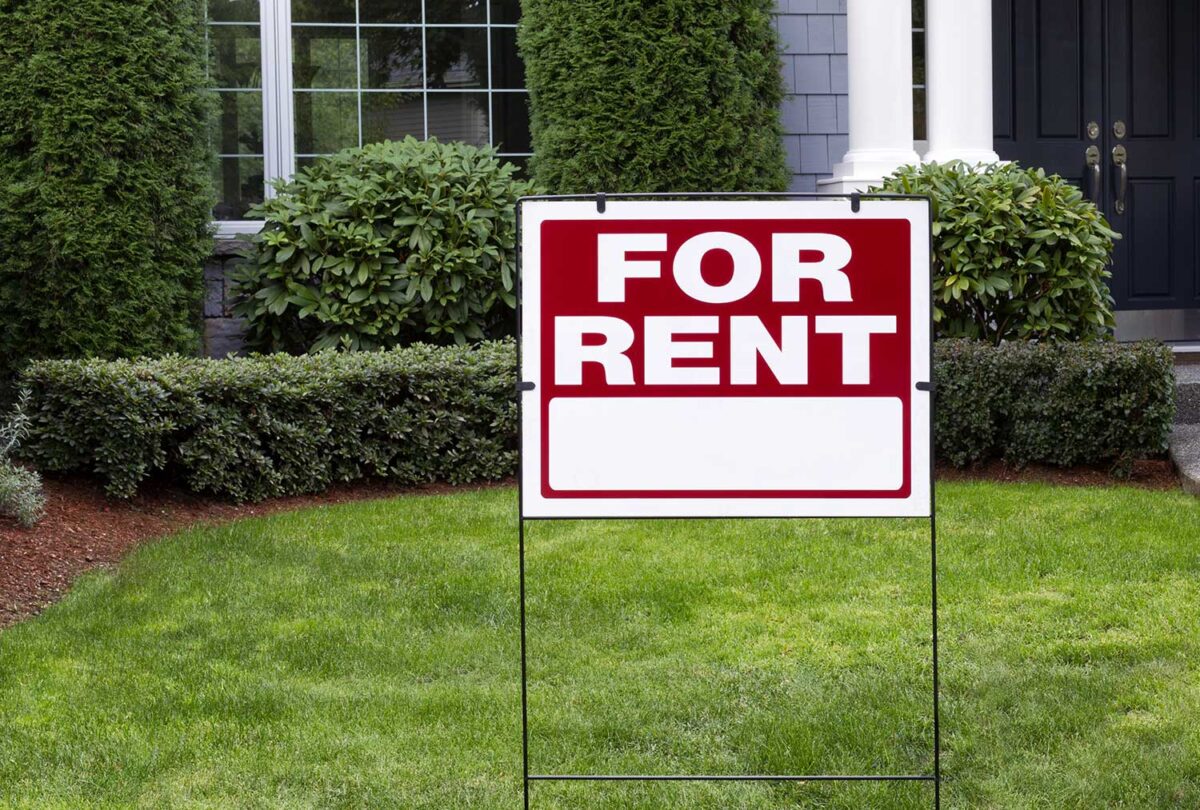Rentals and Covid-19
- May 28, 2020
- Lusk Law News

During the past few months there has been an increase in the number of people who have been affected by COVID-19, either directly or indirectly. In response to the devastation that COVID-19 has caused, some Maryland counties have taken steps to provide relief to their citizens due to the difficult times that COVID-19 has placed on their lives. In addition, the State of Maryland has issued Moratoriums to restrict the eviction process and a Court Order that outlines when cases will be heard, including landlord-tenant cases.
This is a summary of some of the new laws, legislation, Orders, and Moratoriums that have either passed or are pending on the County level and State level. This by no means a complete analysis of the laws provided in each county or all laws that have been passed throughout the state of Maryland. If you need to know if the new orders and laws apply to you, please contact Lusk Law, LLC or view the referenced orders.
Baltimore City
Passed a new law called the Rent Increase Protection Act which prohibits the increase of rent during and after certain declared emergencies. The law prohibits landlords from increasing a tenant’s rental fee if the rent increase would take effect during the emergency issued by the Governor of Maryland on March 5, 2020, or giving certain notices to their tenants, as outlined below.
Notices: Landlords are prohibited from giving notices to their tenants of rent increases during the Emergency and any time prior to the Emergency if the increase would take affect during the Emergency.
- A landlord may not notify their tenants in Baltimore City of a rent increase during this emergency, or 90 days after the emergency has been lifted.
- If a landlord has already given notice to their tenant of a rent increase prior to the emergency AND the increase would take place after the Emergency was declared, the landlord is required to send a written notice to the tenant informing he or she to disregard any notice of a rental fee increase.
Late Fees: The Rent Increase Protection Act prohibits a landlord from charging, assessing, or otherwise seeking to collect late fees from his or her tenants for the nonpayment or the late payment of a rental fee that comes due during an emergency.
For more information please review the
Bill.
Montgomery County
Montgomery County has also passed the COVID-19 Renter Relief Act that prohibits landlords from increasing existing tenants’ rent by more than 2.6% after April 24, 2020 and during the COVID-19 emergency signed by the Governor of Maryland on March 5, 2020.
The Renter Relief Act prohibits landlords from notifying tenants of a rent increase of more than 2.6% during the COVID-19 emergency and for 90 days after the emergency ends.
Montgomery County has stated that “Landlords who previously notified tenants of a rent increase in excess of 2.6% that comes into effect after April 24 and during the catastrophic health emergency or, who gave tenants notice of a rent increase of more than 2.6% since the start of the March 5 emergency, must either notify them to disregard that notice or notify them that the rent amount under the notice will be an amount representing an increase of no greater than 2.6%.”
This limitation on rent increases and notices applies to all licensed residential rentals in Montgomery County (including rental units in multifamily buildings, houses, townhouses, individual condominium units, and accessory dwelling units.)
For more information, visit
Montgomery County’s Renter’s Relief Act Summary Page
Tenants or landlords who have questions or want help can reach Montgomery County DHCA Office of Landlord-Tenant Affairs by calling 311 (240-777-0311).
Howard County
Proposed a similar bill as Baltimore City and Montgomery County, however, the proposed bill is still pending. However, please contact Lusk Law, LLC if you have any specific questions or concerns regarding your rental in Howard County, Maryland.
Moratorium on Evictions
Has been issued by the District Court of Maryland under the Federal Cares Act. The Moratorium is in effect until July 25, 2020 and it prohibits the eviction of tenants from a rental property that is considered to be:
- public housing;
- federally subsidized housing; or
- residential property that is subject to a federally backed mortgage
These properties are protected under the Moratorium, and prohibit the landlord from filing summary actions to recover possession of covered property for nonpayment of rent; evicting a tenant after the moratorium expires, except on 30 days’ notice (which may only be given after the Moratorium period); or from filing a Failure to Pay Rent (“FTPR”) action during the Moratorium for the properties listed above.
If a Landlord has filed such an action, they must notify the court in writing of such filing(s). However, please be advised if a Landlord or his or her agents have filed FTPR actions during the period of the moratorium and have indicated on the FTPR form that the subject property is a government subsidized tenancy, the court will require evidence that the property is not subject to the CARES Act before proceeding.
Section 4024(b) and (c) of the CARES ACT do not absolve tenants of their legal responsibilities to pay rent. Tenants who do not pay rent during the eviction grace period may still face financial and legal liabilities, including eviction,
AFTER the Moratorium ends.
Please see the
Notice from the District Court, regarding the Moratorium.
The Court also issued an Order lifting the Moratorium as of July 25, 2020, for non-affected rental properties. However, all complaints for Failure to Pay Rent, filed from May 22, 2020 through July 25, 2020, must be accompanied by a Declaration of Compliance with the CARES Act. A copy of the Court Order can be viewed
here.
The Court of Appeals
Issued a new order on May 22, 2020. Maryland Courts will be reopening on a phased platform. Below you will find a summary of the phased reopening plan as it relates to Landlord/Tenant cases only.
Maryland Courts will be opening in phases to protect the safety of their employees and those visiting the District and Circuit Courts in Maryland. Although the phases outlined in the Court of Appeals’ order is much more in-depth than what is outlined below, the summary provided here addresses the general guidance provided by the Maryland Courts as to when landlord-tenant matters will be heard.
Please be advised, this is a constantly changing situation, and it may be subject to change with future orders or the health condition in Maryland. Lusk Law, LLC will do our best to keep our clients informed with the most recent update(s). For further clarification or to discuss if the phased reopening will affect your case, please contact Lusk Law, LLC at 443-535-9715.
Phase II:
When: June 5, 2020 through July 19, 2020
Cases Heard: (1) Emergency breach of lease involving threats or injury to people or property
(2) Emergency wrongful detainer actions
Phase III:
When: July 20, 2020 through August 30, 2020
Cases Heard: (1) Tenant holding over actions
(2) Warrants of restitution
(3) Rent escrow actions, provided local departments of health are able to provide inspection
Phase IV:
When: August 31, 2020 through October 4, 2020
Cases Heard: (1) Failure to pay rent cases
Phase V:
When: After October 5, 2020
Cases Heard: Fully Operational.
Regardless of the Phase, Courts are allowed to hear such matters, either in person or on a remote basis, with access to the public as justice requires. Therefore, if the Court deems your case to be heard earlier then the designated phase, they are permitted to set an earlier hearing date.
A full copy of the Order can be viewed
here.
 During the past few months there has been an increase in the number of people who have been affected by COVID-19, either directly or indirectly. In response to the devastation that COVID-19 has caused, some Maryland counties have taken steps to provide relief to their citizens due to the difficult times that COVID-19 has placed on their lives. In addition, the State of Maryland has issued Moratoriums to restrict the eviction process and a Court Order that outlines when cases will be heard, including landlord-tenant cases.
This is a summary of some of the new laws, legislation, Orders, and Moratoriums that have either passed or are pending on the County level and State level. This by no means a complete analysis of the laws provided in each county or all laws that have been passed throughout the state of Maryland. If you need to know if the new orders and laws apply to you, please contact Lusk Law, LLC or view the referenced orders.
During the past few months there has been an increase in the number of people who have been affected by COVID-19, either directly or indirectly. In response to the devastation that COVID-19 has caused, some Maryland counties have taken steps to provide relief to their citizens due to the difficult times that COVID-19 has placed on their lives. In addition, the State of Maryland has issued Moratoriums to restrict the eviction process and a Court Order that outlines when cases will be heard, including landlord-tenant cases.
This is a summary of some of the new laws, legislation, Orders, and Moratoriums that have either passed or are pending on the County level and State level. This by no means a complete analysis of the laws provided in each county or all laws that have been passed throughout the state of Maryland. If you need to know if the new orders and laws apply to you, please contact Lusk Law, LLC or view the referenced orders.



